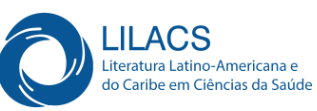La teoría de los complejos culturales: una perspectiva junguiana de lo social
DOI:
https://doi.org/10.5433/2236-6407.2021v12n1p158Palabras clave:
psicología analítica, complejo cultural, inconsciente cultural, conflicto intergrupalResumen
Este artículo realiza un análisis conceptual de la teoría de los Complejos Culturales, en las obras de Samuel Kimbles y Thomas Singer. La teoría de los Complejos Culturales puede ser utilizada como una manera de analizar los conflictos intergrupales, es esencialmente una descripción de una sociología interna. Esta revisión tiene por objetivo presentar una síntesis actual y crítica del concepto. Temas como integración, telos, y la presencia de los Complejos Culturales en la práctica clínica y algunas críticas al concepto son presentadas. Se percibe la presencia de conceptos complementarios que buscan dar soporte a esta teoría. Por fin, se observa la manutención de una estructura base de este concepto, aunque contribuciones tengan sido constatadas a lo largo de las obras analizadas, principalmente en la utilización de conceptos que buscan complementar la descripción de la dinámica de los Complejos Culturales.
Descargas
Citas
Gambini, R. (1982). O espelho índio: os jesuítas e a destruição da alma indígena. Rio de Janeiro: Espaço e Tempo.
Gambini, R. (2003). Soul and Culture. Texas: Texas A&M University Press.
Graff, J. (2018). Re-interpreting Elián González: The Puzzles of the Cultural Complex. Jung Journal: Culture & Psyche. 12(1), 42-56. https://doi.org/10.1080/19342039.2018.1403255
Henderson, J. (1984). Cultural Attitudes in Psychological Perspective. Toronto: Inner City Books.
Henderson, J. (1990). The Cultural Unconscious. In Henderson, J. Shadow and Self: Selected Papers in Analytical Psychology. (pp. 103-113). Chicago: Chiron.
Jung, C. (1902/2013). Sobre a psicologia e patologia dos fenômenos chamados n ocultos. In Estudos psiquiátricos. (pp. 11-203). Petrópolis: Vozes. (Obras Completas v. 1).
Jung, C. (1903/2013). Sobre a estimulação de distúrbio mental. In Estudos psiquiátricos. (pp.167-196). Petrópolis: Vozes. (Obras Completas v. 1).
Jung, C. (1904/2013). Parecer médico sobre um caso de simulação de insanidade mental. In Estudos psiquiátricos. (pp.197-214). Petrópolis: Vozes. (Obras Completas v. 1).
Jung, C. (1904/2012). Estudos diagnósticos de associações. Estudos Experimentais. (pp. 9-248). Petrópolis: Vozes. (Obras Completas, volume 1).
Jung, C. (1905/2013). Criptomnésia. In Estudos psiquiátricos. (pp.108-119). Petrópolis: Vozes. (Obras Completas v. 1).
Jung, C. (1912/2013). Símbolos da transformação. Petrópolis: Vozes. (Obras Completas, v. 5).
Jung, C. (1916/2015). O eu e o inconsciente. (pp. 72-82). Petrópolis: Vozes. (Obras Completas, v. 7/2).
Jung, C. (1919/2013). Instinto e Inconsciente. In A natureza da psique. (pp. 72-82). Petrópolis: Vozes. (Obras Completas v. 8/2).
Jung, C. (1920/2013). Tipos Psicológicos. (pp. 467-468). Petrópolis: Vozes. (Obras Completas, volume 6).
Jung, C. (1925/2014). Seminários sobre psicologia analítica (1925). Petrópolis: Vozes.
Jung, C. (1928/2013). Aspectos gerais da psicologia do sonho. In A natureza da psique. (pp. 186-234). Petrópolis: Vozes. (Obras Completas v. 8/2).
Jung, C. (1934/2013). Considerações gerais sobre a teoria dos complexos. In A natureza da psique. (pp.39-52). Petrópolis: Vozes. (Obras Completas v. 8/2).
Jung, C. (1936/2012). Wotan. In Aspectos do drama contemporâneo. (pp.13-27). Petrópolis: Vozes. (Obras completas, v. 10/2)
Jung, C. (1949/2012). Prefácio ao livro de Neumann "Depth psychology and a new ethic". In A vida simbólica. (pp.205-211). Petrópolis: Vozes. (Obras completas, v. 18/2).
Jung, C. (1953/2013). Um mito moderno sobre as coisas vistas no céu. Petrópolis: Vozes. (Obras completas, v. 10/4).
Jung, C. (1958/2013). Presente e futuro. Petrópolis: Vozes. (Obras completas, v. 10/1).
Kimbles, S. (2000). The Cultural Complex and the Myth of Invisibility. In T. Singer. (Ed.). The Vision Thing. (pp. 157-169). New York: Routledge.
Kimbles, S. (2003a). Joe Henderson and the Cultural Unconscious. The San Francisco Jung Institute Library Journal. 22(2), 53-58. https://doi.org/10.1525/jung.1.2003.22.2.53
Kimbles, S. (2003b). Cultural complexes and collective shadow processes. in J. Beebe. (Ed.). Terror, violence and the impulse to destroy. (pp. 211-33). Einsiedeln, Switzerland: Daimon Press.
Kimbles, S. (2004). A cultural complex operating in the overlap of clinical and cultural space. In. T. Singer. & S. Kimbles. (Eds.). The cultural complex: Contemporary Jungian perspectives on psyche and society. New York: Routledge.
Kimbles, S. (2006). Cultural complexes and the transmission of group traumas in everyday life. Psychology Perspectives, 49 (1), 96-110.
Kimbles, S. (2007). Social Suffering through Cultural Mourning, Cultural Melancholia, and Cultural Complexes. Spring: A Journal of Archetype and Culture. Vol. 78.
Kimbles, S. (2014). Phantom narratives: The unseen contributions of culture to psyche. Lanham, MD: Rowman & Littlefield.
Kimbles, S. (2016). Phantom narratives and the uncanny in cultural life: psychic presences and their shadows. European Journal of Psychotherapy & Counselling, 18(2), 156-169. https://doi.org/10.1080/13642537.2016.1170061
Kimbles, S. (2017). Floating worlds and their phantoms in the aftermath of social catastrophes. J Anal Psychol, 62: 130-146. doi: 10.1111/1468-5922.12289.
Laurenti, C. & Lopes, C. (2016). Metodologia da pesquisa conceitual em psicologia. In C. Laurenti. C. Lopes, & S. Araujo. Pesquisa Teórica em Psicologia. São Paulo: Hogrefe.
Lu, K. (2013a). Can individual psychology explain social phenomena? An appraisal of the theory of cultural complexes. Psychoanalysis, Culture & Society. 18(4), 386-404. https://doi.org/10.1057/pcs.2012.43
Lu, K. (2013b). Reply to Thomas Singer. Psychoanalysis, Culture & Society. 18(4), 416-422. https://doi.org/10.1057/pcs.2012.43
Machado, A., Lourenço, O., & Silva, F. (2000). Facts, concepts, and theories: the shape of psychology's epistemic triangle. Behavior and Philosophy, Cambridge, 28, 1-40.
Odajynk, V. (1976). Jung and politics: The political and social ideas of C. G. Jung. New York: Harper.
Progoff, I. (1953). Jung's psychology and its social meaning; An introductory statement of C.G. Jung's psychological theories and a first interpretation of their significance for the social sciences. New York Grove Press.
Samuels, A. (1989/1992). A psique plural. Rio de Janeiro: Imago.
Samuels, A. (1993/1995). A psique política. Rio de Janeiro: Imago.
Samuels, A. (2001/2002). A política no divã. São Paulo: Summus.
Samuels, A., Shorter, B. Plaut, F. (1998). Dicionário crítico de análise junguiana. Rio de Janeiro: Imago/Consultoria Editora.
Singer, T. (2002). The Cultural Complex and Archetypal Defenses of the Collective Spirit: Baby Zeus, Elian Gonzales, Constantine's Sword, and Other Holy Wars. San Francisco Jung Institute Library Journal, 20(4): 4-28.
Singer, T. (2003). Cultural Complexes and Archetypal Defenses of the Spirit. in J. Beebe. (Ed.). Terror, violence and the impulse to destroy. (pp. 191-210). Einsiedeln, Switzerland: Daimon Press.
Singer, T. (2006a). The cultural complex: a statement of the theory and its application. Psychother. Politics Int., 4: 197-212. doi:10.1002/ppi.110
Singer, T. (2006b). Unconscious Forces Shaping International Conflicts: Archetypal Defenses of the Group Spirit from Revolutionary America to Confrontation in the Middle East. The San Francisco Jung Institute Library Journal, 25(4), 6-28. https://doi.org/10.1525/jung.1.2006.25.4.6
Singer, T. (2006c). The Cultural Complex in Theory and Practice. In L. Cowan (Ed.). Barcelona 2004 Edges of Experience: Memory and Emergence. Proceeding of the Sixteeth International Conference for Analytical Psychology. Einsiedeln, Switzerland: Daimon.
Singer, T. (2007). A Personal Reflection on Politics and the American Soul. Spring: A Journal of Archetype and Culture. Vol. 78
Singer, T. (2009). A Jungian approach to understanding 'us vs them' dynamics. Psychoanalysis, Culture and Society, 14(1), 32-40.
Singer, T. (2010). The transcendent function and cultural complexes: a working hypothesis. Journal of Analytical Psychology. 55(2), 234-241.
Singer, T. (2012a). The Meshugana Complex: Notes from a Big Galoot Galut. Jung Journal: Culture & Psyche, 6(1), 72-84. https://doi.org/10.1525/jung.2012.6.1.72
Singer, T. (2012b). The transcendent function, cultural complexes and change in society. Irish Journal of Counselling and Psychotherapy. 12(2), 22-26.
Singer, T. (2012c). Introduction. In P. Amezaga., G. Barcellos., A. Capriles., J. Gerson., & D. Ramos. (Eds.). (2012). Listening to Latin America: Exploring cultural complexes in Brazil, Chile, Colombia, Mexico, Uruguay, and Venezuela. (pp. 1-13). New Orleans: Spring Journal Books.
Singer, T. (2013a). Response to Kevin Lu's "Can individual psychology explain social phenomena? An appraisal of the theory of cultural complexes." Psychoanalysis, Culture & Society, 18(4), 405-415. https://doi.org/10.1057/pcs.2013.18
Singer. T. (2013b). Playing the race card: A cultural complex in action. In G. Heuer (Ed.). Sacral Revolutions Reflecting on the Work of Andrew Samuels - Cutting Edges in Psychoanalysis and Jungian Analysis. New York: Routledge
Singer, T. (2014a). On the Cultural Complex: Introductory Remarks to a 2013 IAAP Copenhagen Conference Panel. In E. Kiehl (Ed.). Copenhagen 2013 - 100 Years On: Origins, Innovations and Controversies. Einsiedeln, Switzerland: Daimon.
Singer, T. (2014b). Psyche and Society: Some Personal Reflections on the Development of the Cultural Complex Theory. Journal of Jungian Scholarly Studies, 9(1), 1-12. Disponível em: http://www.jungiansociety.org/images/e-journal/Volume-9/JSSSvol9-2014.pdf#page=7
Singer, T. (2015). Is America's "Money Complex" bankrupting Its Character? In P. Peay. (Ed.). America on the Couch: Psychological Perspectives on American Politics and Culture. (pp. 312-323). Brooklyn: Lantern.
Singer, T. (2016a). Trump and the american selfie spirit. In S. Carta. A. Adorisio. R. Mercurio. (Eds.). The Analyst in the Polis (Volume I). Rome: Street Lib.
Singer, T. (2016b). Snapshots of the obamacare cultural complex. In E. Kiehl. M. Saban. A. Samuels. (Eds.). Analysis and Activism: Social and Political Contributions of Jungian Psychology (pp. 147-155). New York: Routledge.
Singer, T. (2016c). President Trump and the American Selfie Spirit: Archetypal Defenses of the Group Spirit. In S. Busen, L. Cruz, J. Bolen (Eds.). A Clear and Present Danger: Narcissism in the Era of President Trump. Asheville: Chiron
Singer, T. (2016d). Introduction. In T. Singer. & J. Rasche. (Eds.). (2016). Europe's Many Souls: Exploring Cultural Complexes and Identities. (pp. 1-13). New Orleans: Spring Journal Books.
Singer, T. (2017). Donald Trump and the American Collective Psyche. In B. Lee. (Ed.). The Dangerous Case of Donald Trump: 27 Psychiatrists and Mental Health Experts Assess a President. New York: St. Martin's Press.
Singer, T. (2018a). The cultural complex theory: scientific and mythopoetic ways of knowing. In J. Cambray, L. Sawin. (Eds.). Research in Analytical Psychology: Applications from Scientific, Historical, and Cross-Cultural Research: Volume 1. New York: Routledge.
Singer, T. (2018b). Extinction Anxiety and Donald Trump. In S. Buser, J. Gartner. (Eds.). Rocket Man: Nuclear Madness and the Mind of Donald Trump. Asheville: Chiron.
Singer, T.; Kaplinsky, C. (2010). Cultural Complexes in Analysis. In M. Stein (Ed.). Jungian Psychoanalysis: Working in the Spirit of C.G. Jung (pp. 22-37). Open Court Publishing Company: Chicago.
Singer, T., & Kimbles, S. (Eds.). (2004a). The cultural complex: Contemporary Jungian perspectives on psyche and society. New York: Routledge.
Singer, T., & Kimbles, S. (2004b). The emerging theory of cultural complexes. In Cambray, J. & Carter, L. (Eds.). Analytical psychology: Contemporary perspectives in Jungian analysis. (pp.176-203). New York: Routledge.
Shamdasani, S. (2011). Jung e a Construção de uma Psicologia Moderna: O Sonho de uma Ciência. Aparecida - SP: Editora Idéias e Letras.
Shamdasani, S. (2012). Introdução. In. C. Jung, O livro vermelho: Liber Novus. Petrópolis: Vozes.
Waldron, S. (2003). Cultural property and the dilemma of the collective unconscious. Quadrant, XXXIII, 35-49.
Descargas
Publicado
Cómo citar
Número
Sección
Licencia
Derechos de autor 2021 Estudos Interdisciplinares em Psicologia

Esta obra está bajo una licencia internacional Creative Commons Atribución 4.0.
Estudos interdisciplinares em Psicologia adota a licença CC-BY, esta licença permite que os reutilizadores distribuam, remixem, adaptem e criem a partir do material em qualquer meio ou formato, desde que a atribuição seja dada ao criador. A licença permite o uso comercial.
Este obra está licenciado com uma Licença Attribution 4.0 International (CC BY 4.0)




















